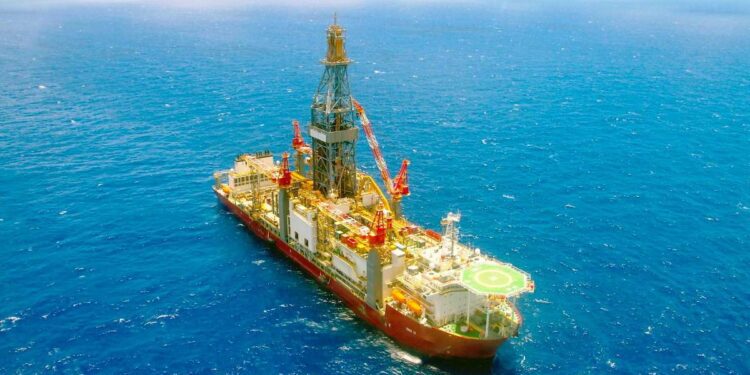Brazil is becoming one of the largest oil powers in the world. Since 2000, Brazil has more than tripled its oil production to exceed 3.5 million barrels per day (enough to supply the demand of nearly three ‘Spains’). A new oil discovery is going to help the South American country continue on this path. Brazilian oil company Petrobras announced a few hours ago the discovery of a hydrocarbon accumulation in a well being drilled in very deep waters of the Potiguar marine basin, at the southern tip of the promising region known as the Equatorial Margin.
The deposit was discovered by the exploratory well Anhangá in the POT-M-762-R15 block, a marine area off the coast of northeastern Brazil where Petrobras has the concession to explore and exploit individually with a 100% stake. The company has stated that this is its second discovery of hydrocarbon accumulations in the Potiguar basin after having discovered a deposit in another well, from another concession, about 24 kilometers from Anhangá earlier this year, as confirmed by the Brazilian company in a statement only released in Portuguese.
“The discoveries still require additional evaluations,” explained Brazil’s largest company clarifying that the volume of the discovered deposits is unknown. The Anhangá well “is located near the border between the states of Ceará and Rio Grande do Norte, about 190 kilometers from the city of Fortaleza and about 250 kilometers from the city of Natal, in an area where the water depth reaches 2,196 meters in the Brazilian Equatorial Margin,” the company reported in a statement.
However, Petrobras is very confident in its ability to continue exploiting this oil: “The company has a track record of almost 3,000 wells drilled in deep and ultra-deep water environments, without any kind of complication or impact on the environment, which, combined with the technical capacity and accumulated experience for almost 70 years, allows the company to open new frontiers and manage its operations in the Equatorial Margin with total safety,” said Petrobras President Jean Paul Prates.
The Brazilian firm explains that to assess the discoveries, Petrobras applies geological and geophysical technological solutions, combined with the experience and excellence of the company’s technical staff, as well as its global leadership in deep and ultra-deep water operations. The drilling of this second exploratory well was also completed safely, within the most rigorous deep-water operation protocols, reaffirming that Petrobras is prepared to carry out activities in the Equatorial Margin with full responsibility. This reveals that the Brazilian company’s intention is to exploit that area to the fullest, a very promising area for the oil market.
The Equatorial Margin and oil
The Equatorial Margin is a vast horizon for exploration in the Atlantic Ocean, off the northern coast of Brazil, where Petrobras estimates that there are huge hydrocarbon reserves given the enormous discoveries made in the same region by Guyana and Suriname.
However, the most promising area considered is the northern region of the Equatorial Margin, off the mouth of the Amazon River, whose possible exploitation generates widespread controversy in Brazil due to its environmental and social vulnerability. Petrobras estimates that exploitation off the mouth of the Amazon could yield 14,000 million barrels of oil and argues that the nearest well to the river’s mouth is about 500 kilometers away and 2,880 meters deep.
The volume of reserves expected in that region is seven times higher than that calculated in the Potiguar basin. “Exploratory activities in the Equatorial Margin represent another step in Petrobras’ commitment to replenish its reserves and develop new exploration frontiers to ensure meeting global energy demand during the energy transition,” the company stated.
Petrobras’ five-year plan foresees investments of $7.5 billion (approximately €6.907 billion) in exploration, of which $3.1 billion in the Equatorial Margin, where the company plans to drill at least 16 wells by 2028. “If Brazil maintains oil demand at current levels and does not incorporate new reserves, the country may become a crude oil importer,” the statement added.


